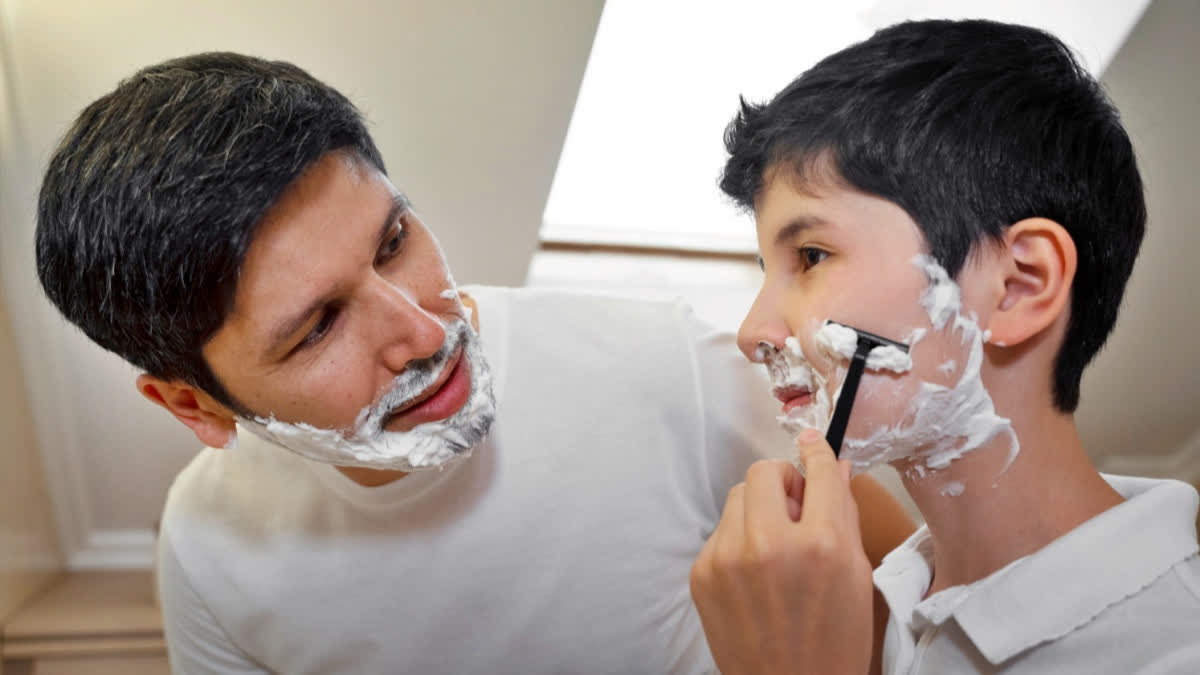For some children, puberty begins at an age when they’re still figuring out how to wear a necktie or learn to swim. Known as precocious puberty, this condition can start as early as six or seven years old, causing confusion, emotional distress, and health challenges for both the child and their parents.
Studies have shown that precocious puberty is on the rise globally, with lifestyle and environmental factors playing a significant role. A 2022 study from China published in the journal Frontiers In Pediatricslinked childhood obesity to early puberty.
Another study from Italy during the COVID-19 pandemic reported a three-fold increase in the number of precocious puberty cases in girls in the year 2020 compared to 2019, possibly due to increased screen time, disrupted routines, and weight gain during lockdowns.
Says Dr. Kanchankumar Bhagyawant, Consultant Paediatrician and Neonatologist at Ruby Hall Clinic, Pune, “Early puberty can sometimes result from familial traits or environmental factors, but it may also signal underlying health conditions or hormonal imbalances.”
Precocious puberty can be stressful on the kids and their parents because the physical and emotional changes happen before the child is ready. Dr. Bhagyawant adds, “It’s important to consult a doctor, especially a paediatric endocrinologist, if you notice signs of early puberty.” They can check for any health issues and help manage the condition to ensure your child’s growth and development stay on track.
What Is Precocious Puberty?
Precocious puberty is when a child starts showing signs of puberty earlier than usual. Normally, puberty begins around age 9 to 11 in girls and 10 to 13 in boys. But in precocious puberty, these changes start before age 8 in girls or before age 9 in boys.
This means things like facial hair in boys, pubic hair growth, or girls developing breasts much earlier than expected. It can be harmless (if it runs in the family), but it may also be caused by underlying health issues, like hormone imbalances or medical conditions.
Challenges Of Early Puberty
Puberty involves physical, emotional and social changes that typically occur during adolescence. “The early onset of puberty (especially in children as young as six) can cause significant anxiety for both the child and their parents,” says Dr. Bhagyawant. When puberty starts prematurely, it can lead to several challenges:
Shorter Adult Height:Premature bone maturation often stunts growth, reducing final adult height.
Emotional Stress:Children may feel self-conscious or anxious about being physically different from their peers.
Social Difficulties:Early physical changes can create a sense of isolation or lead to bullying, affecting the child’s confidence and relationships.
What Causes Early Puberty?
Precocious puberty can have several underlying causes:
1. Central Precocious Puberty (True Precocious Puberty)
This type occurs when the brain’s hypothalamus-pituitary-gonadal axis (which regulates puberty) activates prematurely.
Common causes include:
- Brain infections or tumours
- Traumatic brain injuries
- Neurological issues at birth, such as oxygen deprivation
- Genetic mutations or syndromes
This form of puberty follows the typical sequence of development but begins too early, with signs like breast development in girls or testicular enlargement in boys.
2. Peripheral Precocious Puberty
This type is triggered by issues outside the brain, often involving the ovaries, adrenal glands, or testicles.
Common causes include:
- Ovarian cysts or tumours in girls
- Congenital adrenal hyperplasia (excess androgen production)
- Testicular tumours in boys
- Exposure to external hormones like estrogen or testosterone
3. Mixed Precocious Puberty
In some cases, children with peripheral precocious puberty may also develop central precocious puberty later. For example, conditions like congenital adrenal hyperplasia can initially trigger early adrenal hormone production, eventually activating the brain’s puberty-regulating mechanisms.
4. Incomplete Precocious Puberty
